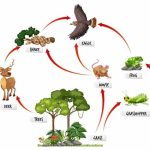You’ve undoubtedly heard the story of the Tortoise and the Hare. The tale bears a close analogy with the development of children at an early age. Late bloomer kids might start off checking those development milestone boxes later on, but that doesn’t mean they mightn’t overtake children who have bloomed earlier than them, in other key areas of development.
What is late bloomer meaning and how does it impact overall child development?
5 Key Signs of Late Bloomer Kids
Here are some of the things that best characterises late bloomer signs of kids.
- They haven’t rolled over on their own by the age of 5 months.
- They cannot sit up despite support, even at the age of 8 months.
- The idea of colouring with crayons does not pique their interest.
- They haven’t made an attempt to walk for 18 months.
- They haven’t spoken a single ‘proper’ word even at the age of 2. These are the signs of a late bloomer child.
Have you ever wondered about the meaning of late bloomer meaning in children?
5 Key Reasons for Late blooming in Kids
Here are some of the factors that might influence the development of your child.
- Temperament
- Over-Pampering
- Eating habits and Health
- Separation Anxiety
- They have other interests
Children with a persistent nature will ensure they master skills like rolling over. It’s not the same with other kids who might have a lower threshold of giving up where it comes to mastering those crucial life skills.
“Language development requires understanding and speaking, and these skills develop differently. Receptive language (understanding) must happen first and usually comes before expressive language (speaking) by half a year. So if, for instance, your toddler can point to their nose when you ask them to, that’s a sign that their language skills are developing, even if they are not yet talking.”
– Natalie D Muth, Writer at Parents
It’s a given that we all want to pamper our babies, but not to the extent that it hampers their development. If you’re constantly handing them that favourite ball, not giving them a chance to reach out for it on their own, that might just do more harm than good. Over-pampering is one of the top reasons for late blooming in kids. It’s best to strike a balance and not coddle them too much. Therefore, over-pampering could create signs of late bloomer in kids.
Late baby bloomers are in many instances, merely children who don’t eat healthy. If your child is undernourished, it’s a given that they will possibly not reach those developmental milestones as fast as kids who find themselves in the proverbial pink of health. While eating right for kids is important, ensure to take good care of their overall health, too, like sending them off for a warm bath after they get soaking wet while playing, so they don’t catch a chill.
Identifying the signs of separation anxiety is essential to notice signs of a late bloomer kid. This might seem a bit strange, but children who take their first few steps might just not repeat that awesome feat because they find it’s taking them away from their mommies!
Some children love playing with crayons and showing signs of the budding artist within, while others might be more excited by the joy proffered by a ‘sense of mobility’. Every child is unique, and while you’re so focused on their ‘not developing’, you might just miss the areas where they develop ‘with a flourish’!
4 Critical Reasons for Late Walking in Babies
Of all the things that worry parents vis a vis their babies’ development, not walking while other younger babies their age have started long ago, is one of the top worrying concerns. What might the key reasons be, for late walking in babies?
- Lack of interest in standing
- Difficulty with balance and coordination
- Delay in reaching other milestones like crawling and sitting up
- Persistent stiffness or floppiness
What do you do if a baby wants to laze around? After all, they have an upcoming lifetime of running around to do.
Give them some flak; you won’t remember, but you’ve been through awkward moments like these, too.
Early child development is a step-by-step process.
Did you ever stop and think that they might be trying to follow their instincts, but that it is incredibly difficult to follow through?
Month Wise Milestones for Babies – Know it Right!
Again, every baby is different. No need to be alarmed if your baby is not checking all these milestones during each month of their first year. Here’s a look, nonetheless, at the ‘generally expected’ month wise milestones for babies.
1-month-old
- Tries different facial expressions
- Gets startled at hearing loud noises
- Can sometimes briefly hold their heads up
- Able to recognize your smell
2-month-old
- Might smile
- Brings their hands to their mouth
- Makes cooing sounds
- Tries to look at their parent’s face
3-month-old
- Might laugh
- Follows objects with eyes
- Might roll from tummy to back
- Reaches for, and might be able to grasp, toys
4-month-old
- Smiles at familiar faces
- Starts to babble
- Imitates sounds and facial expressions
- Holds head steady without support
5-month-old
- Enjoys playing ‘peek-a-boo’
- Might be able to sit when propped up with pillows
- Picks up and moves objects with their hands
- Can most likely roll over from tummy to back
6-month-old
- Responds to their own name
- Recognizes familiar people
- Tries to talk to you
- Rolls from tummy to back and back to tummy
7-month-old
- Understands the meaning of the word ‘no’.
- Loves playing with you
- Might be able to sit up unsupported
- Reacts to the ‘emotion’ in your voice
8-month-old
- Sits without support
- Might start crawling
- Might say ‘mama’ for the first time (If you’re lucky!)
- Might grasp small objects
9-month-old
- Claps their hands (They’re happy and they know it!)
- Remembers the location of their toys
- Might pull themselves up and stand
- Attempts to wave
10-month-old
- Might take a few steps unassisted
- Might point to certain objects they want
- Starts shaking, throwing and banging toys
- Can understand some baby sign language
11-month-old
- Looks at objects when named
- Is able to understand more words
- Might be able to follow simple directions
- Might be able to pull up with some support and stand for a few seconds
12-month-old
- Can sit without support
- Might walk without support
- Uses a sippy cup
- Responds to simple commands
Conclusion
While all parents are told that their children should develop along a certain timeline, it’s perfectly all right if your little one doesn’t hit all developmental milestones at the expected time. In this article, we have provided information on later bloomer child. At EuroKids, it’s our mission to gradually ease your children into those developmental milestones they will be hitting way past that one year of their development. Your baby might be a late bloomer, but we will do everything in our capacity to hone their skill set in succinct (but relaxed) fashion.
Do you see signs of late blooming in your child? If yes, what are you planning to do about it?
For informative and accurate articles on all things related to your new born-toddler’s development, growth, health and nutrition, follow EuroKids Blogs and do check out our nationally recognized preschools – EuroKids for the first step in your kid’s educational journey!
















